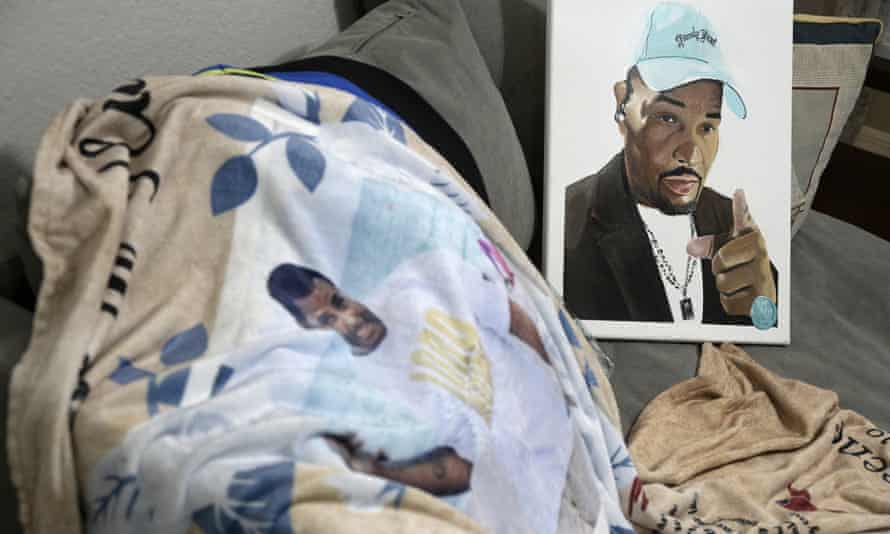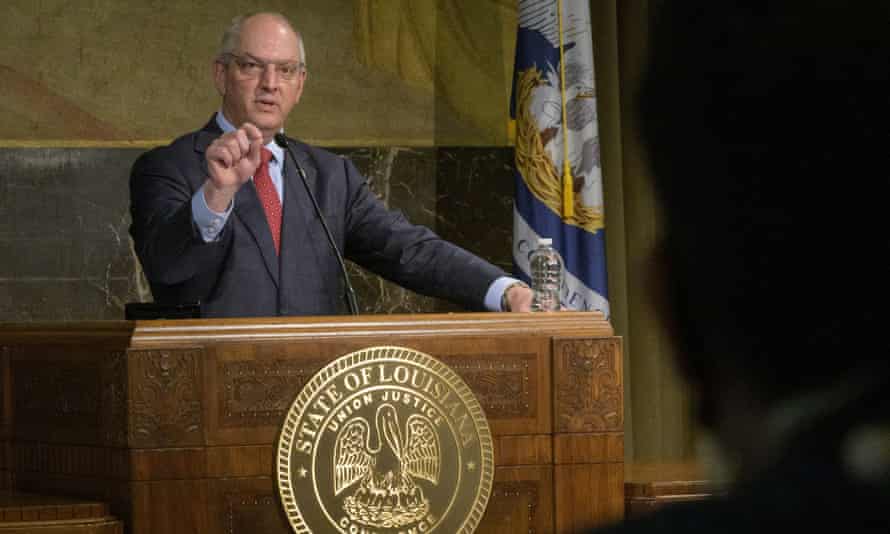Thursday marked 1,000 days since Ronald Greene died on a roadside in northern Louisiana. And the 1,000th day, too, that Greene’s mother, Mona Hardin, has awaited answers from state and federal authorities.
“It’s hard to sleep,” Hardin told the Guardian in an interview. “But it’s something I have to push myself through. It has destroyed my family, because of what we saw and what we know.”
It was May 10, 2019 when Greene was arrested by Louisiana state police for an unspecified traffic violation. The story made public by police back then was that the 49-year-old Black man had led troopers on a high-speed pursuit, crashed his car, and then engaged in “a struggle” before dying.
But gradually a clearer narrative emerged, laced with brutality and attempted cover-up. Greene, who was unarmed, had been stunned multiple times with tasers, punched in the face, placed in a chokehold and shackled, and had lain prone for almost 10 minutes before his death of him at the hands of six white troopers.
Body-camera footage of the incident was suppressed for two years until the Associated Press published excerpts last year, showing Greene, his face bloodied, pleading with officers to desist.
“I’m sorry!” Greene said. “I’m your brother! I’m scared!”
A US justice department civil rights and wrongful death investigation remains pending after an internal review declined to bring chargesallegedly following pressure from senior members of the state police force.
But this week, new revelations have sent shockwaves around Louisiana, forcing the state’s Democratic governor, John Bel Edwards, to publicly deny he had delayed or interfered with investigations into Greene’s death.
The Associated Press reported Edwards received a text message from Louisiana state police superintendent Kevin Reeves just hours after Greene’s death, informing Edwards of a “violent, lengthy struggle” leading to the Black motorist’s death, at a time when public information on the incident was scant .
Superintendent Reeves resigned in October 2020 amid mounting scrutiny of the department in the wake of Greene’s death.

The message was sent as Edwards was fighting a re-election campaign in a deep red state, which saw the governor make little comment on Greene’s death until years later. The reporting also suggests that Edwards’s handling of the incident is now part of the federal civil rights investigation.
During a heated press conference struck this week, the governor a defiant line after his office insisted the text alert had been standard operating procedure.
“There are implications that I knew more, or that one or more of my staff members tried to cover up what happened. I will say that that is simply and categorically false,” he said, acknowledging for the first time in public that the killing was a racist act.
“It is sad. It is regrettable that I am here under these circumstances talking about these things. But unfortunately, it is unavoidable.”
The governor is facing increasingly bipartisan criticism, both from state Republicans who control Louisiana’s legislature, and members of the Democratic Black caucus who held a heated closed door meeting with Edwards earlier this week.
Hardin, who lives in Florida, and lost her job shortly after her son’s death due to stress, remained unconvinced by the governor’s denial and has called for his resignation.
“It’s a cowardly way for him to approach the murder of a man by his state troopers,” she said. “He said the text message was standard procedure, but there was no follow-up on his end of him after the murder of a man? They carelessly and lightly really insisted this was ‘standard procedure’. But not one ever made any effort to be honest with me.”
Edwards won an incredibly tight 2019 re-election campaign on the shoulders of Black voters. According to election analysishe won 99% support among the Black community, who turned out in high numbers to push him over the line.
“It’s going to be very difficult for Black people to trust him again,” said Eugene Phillips, president of the NAACP Baton Rouge chapter. “He’s going to have to really work hard to rebuild that trust. And at this point I don’t know if he can.”
Phillips reiterated the NAACP’s demand that Edwards meet with the Greene family to explain the message and his prior knowledge of the case. As of Wednesday, the Greene family had received no communication from the governor.

Edwards, a centrist, is the only statewide Democrat elected to office in Louisiana, and has recently made pronounced comments about the legacy of racism in the state. Last month the governor signed a pardon for Homer Plessy, the civil rights pioneer whose act of civil disobedience in 1892 led to the infamous Plessy v Ferguson supreme court decision.
“The stroke of my pen on this pardon, while momentous, it doesn’t erase generations of pain and discrimination,” Edwards said at the time. “It doesn’t eradicate all the wrongs wrought by the Plessy court, or fix all of our present challenges.”
But the governor has also signed into law a controversial “blue lives matter” bill in 2016. The act expanded the state’s existing list of groups protected against hate crimes on grounds of race, religion, sexual orientation and other minority groups to include law enforcement officers and other first responders. It faced significant criticism from civil liberties groups and Black Lives Matter activists at the time.
For some observers, Edwards’s “standard procedure” defense is perhaps in line with his character both as a no-frills straight-talker, but also as the son and brother of law enforcement officers.
“Edwards is very careful. He’s a lawyer with a family background in law enforcement. He’s not given to wild pronouncements or getting ahead of a story,” said Dr Pearson Cross, associate professor of political science at the University of Louisiana at Lafayette. “I also think he would be inclined to accept the story, as it was originally told, until he had proof that it was different.”
For Mona Hardin, the wait for answers continues.
“We still have to hope and pray that everyone digs down real deep, to bring this to its proper course and for everyone who had their hand in this to be held accountable,” she said.
“You just can’t keep overlooking the murder of a man. You can’t keep letting these killer cops get away with it,” she added. “It’s organized crime.”
www.theguardian.com
George is Digismak’s reported cum editor with 13 years of experience in Journalism